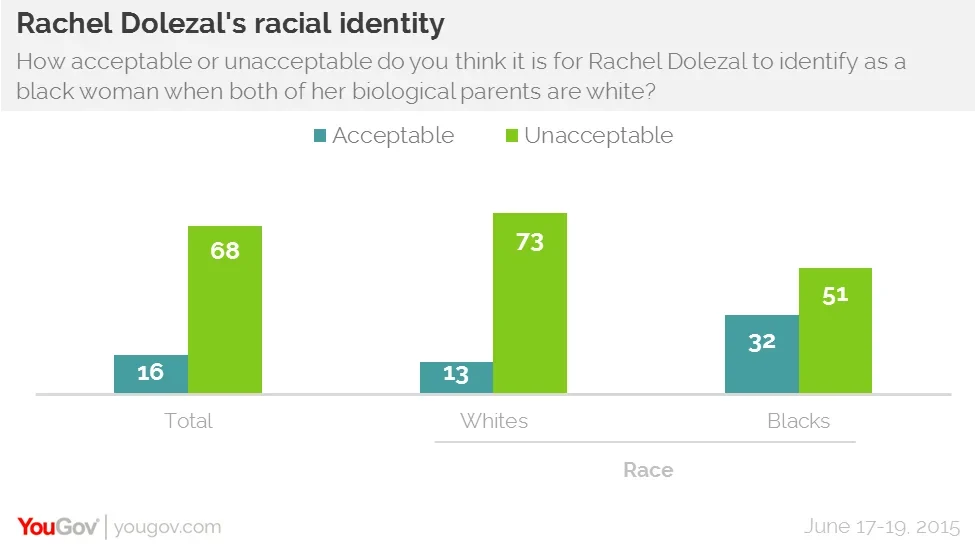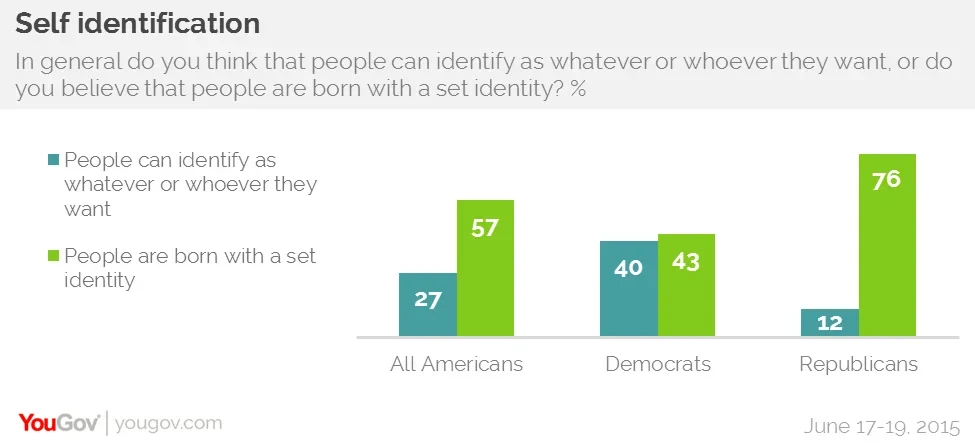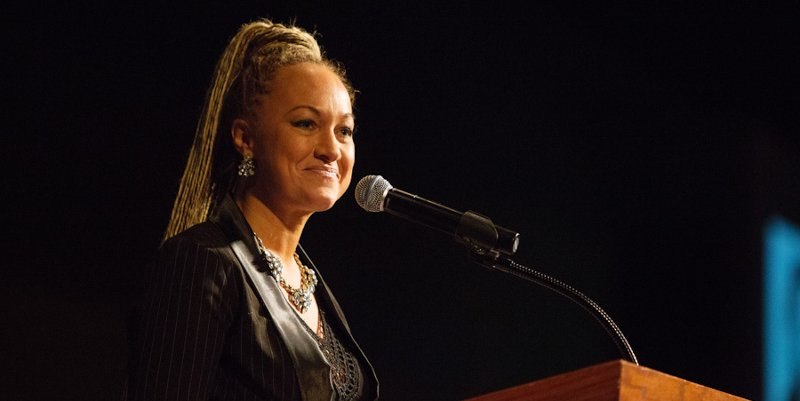Most Americans believe you are born with a 'set identity', but a third of black Americans think it is acceptable for Rachel Dolezal to identify as black
Just over a week ago the head of the Spokane chapter of the National Association for the Advancement of Colored People (NAACP), Rachel Dolezal, was revealed to not actually be of African-American descent. Dolezal was born in Montana to two white parents, Ruthanne and Lawrence Dolezal from whom she is now estranged. After attending the historically black Howard University she became involved in causes of racial justice and by 2007, by which time she lived in Spokane, she was saying that her father was black. Since her heritage has come to light Dolezal has had to resign as head of the Spokane NAACP and stopped teaching at Eastern Washington University.
YouGov's latest research shows that a large majority of Americans (68%) believe that it is unacceptable for Rachel Dolezal to identify as a black woman while only 16% believe that it is acceptable. Among whites 73% say that it is unacceptable, with 55% saying that it is 'very unacceptable'. While among black Americans a small majority (51%) believe that it is unacceptable for Dolezal to identify as a black woman, 32% believe that it is acceptable.

Despite this, few Americans say that Dolezal's identification as a black woman 'makes them angry'. Overall 21% of Americans, and 24% of black Americans, say that the affair makes them angry.
Dolezal isn't the only prominent figure to reveal a major shift in identity recently, but Caitlyn Jenner (formerly Bruce) received a markedly different reaction, even featuring on the cover of Vogue in her first photoshoot.
Concerning the principle of shifting identity, whether that be racial, gender, or anything else, just over a quarter of the American public (27%) believe that people can identify as 'whatever or whoever' they want, while 57% say that people are born with a set identity. Democrats (40%) are much more likely than Republicans (12%) to say that people can identify as they wish. Younger Americans also tend to be more likely to believe that an individual can identify as whatever or whoever they want, although no group tends to believe this.











